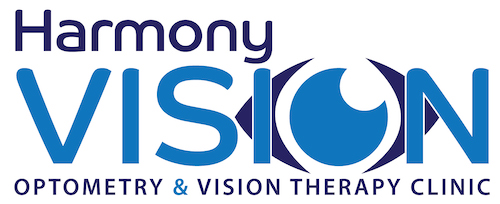The link between vision and learning
Why is vision important?
Vision is a sense. Yet, it is more complicated than other senses like hearing, because it relies on good muscle control to get the information to the brain. In other words, focusing, eye teaming and eye movement control affect the quality of the visual information reaching the brain.
 Put simply, if a child cannot keep the page clear and single with ease, or move their eyes accurately from place to place, they will fail to work to their potential.
Put simply, if a child cannot keep the page clear and single with ease, or move their eyes accurately from place to place, they will fail to work to their potential.
Muscle development proceeds along much the same path for all children. Each developmental stage provides the foundation for the next. For example, fine motor control develops after gross motor. As you can see below, even in normal development, eye muscle control starts after birth, but the finely-tuned control required for long periods of reading, writing or close work does not start to develop until a child is beginning Prep.
Vision in the classroom
When a child enters the classroom, they are expected to have reached a certain developmental stage, in order that they can participate fully in all that a teacher has planned for them. However, what if a child hasn’t developed visual skills like their peers? This is like turning up to a building site to build a house, without the correct tools. No matter how eager a child is to learn to build a house, they cannot do it without a minimum set of tools. Without these tools, they will develop coping strategies (for example, using a rock instead of a hammer) or else, they soon become frustrated by their lack of progress and give up. Turning up to a classroom without the necessary “visual tools” usually results in the following:
- Poor attention and/or concentration
- Easily distracted
- Avoidance of close work
- Poor recall of visual material and/or poor comprehension
- Headaches or sore eyes
- Tired or excessive fatigue at the end of a day
- Making “silly mistakes” or repeating the same mistakes
- Difficulty acquiring the fundamental early skills for reading or spelling
Is my child dyslexic? And, can you test for it?
The short answer is no, optometrists do not diagnose and treat dyslexia. However, given how important good vision is to good development, there are two things to consider.
- There are many symptoms related to hidden vision problems that might start parents and teachers wondering if the child has dyslexia. Without specific testing for these hidden vision problems, it is very difficult to spot the difference.
- To be blunt, it is also a simple fact that dyslexics have eyes too. Regardless of the cause of a reading difficulty or the diagnosis, the reality is that sometimes a dyslexic child may also have a vision problem, which places an additonal burden on their ability to try and remediate the reading difficulties. They deserve the same level of care and attention any children. Unfortunately the “debate” over the cause of dyslexia means that good visual care is often overlooked.
We have been treating children’s vision problems for many years, and have a dedicated practice on the Gold Coast aimed at alleviating the burden that a vision problem may have on a child’s learning.
